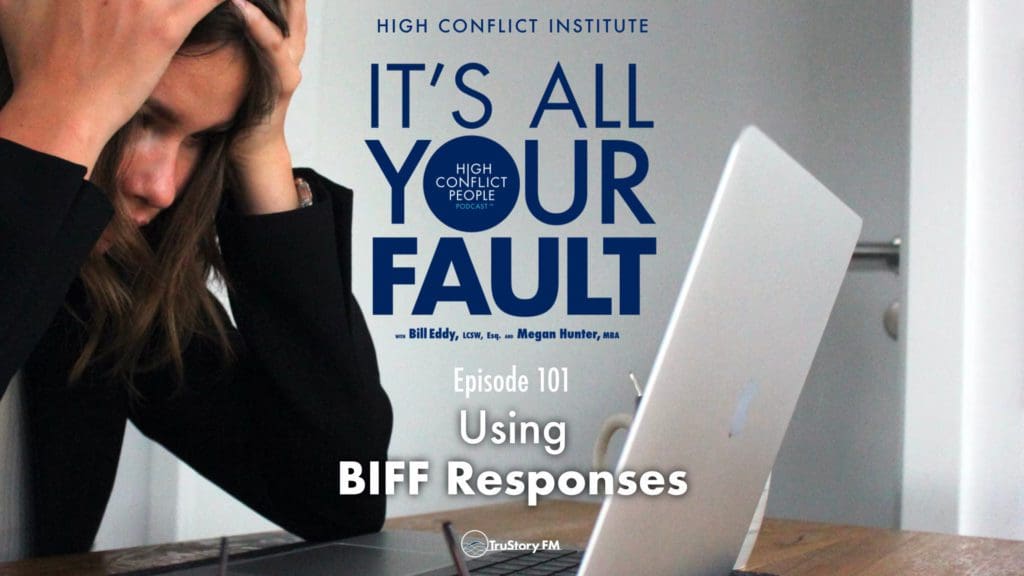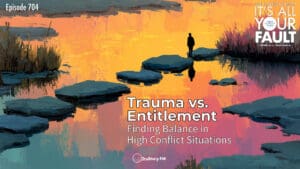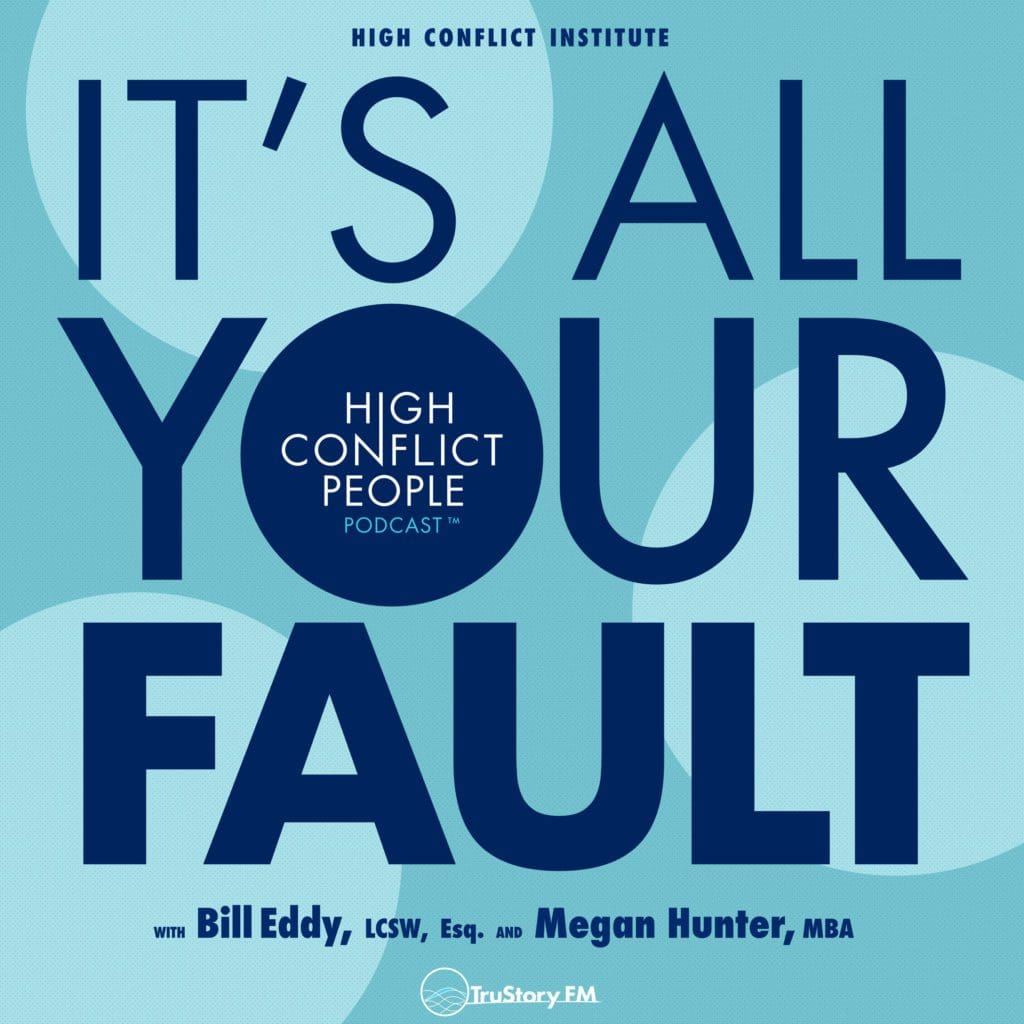In today’s episode, we talk about how to tackle hostile communications with BIFF Responses.
What is a hostile communication? It usually contains blame and personal attacks. You read it. Your heart rate doubles. You either want to blast back or instantly delete. Mostly, you never want to hear from that person again. It was far less common pre-electronic communication. Now it’s a matter of daily life, especially on social media or even more so when the communication is coming from someone with a high conflict personality.
The challenge with dealing with HCPs, or people with High Conflict Personalities, is that they wage war wherever they can, including on your screen. The problem is that most people respond right away. Why? Because they think they need to defend themselves. We talk about why people do that; why the HCP sends it in the first place; whether or not you need to respond; and if you do, how to do it differently using a BIFF Response.
Do you need to respond?
Much of hostile e-communication does not need a response. Letters from (ex-) spouses, angry neighbors, irritating co-workers, or attorneys do not usually have legal significance. The letter itself has no power, unless you give it power. Often, it is emotional venting aimed at relieving the writer’s anxiety. If you respond with similar emotions and hostility, you will simply escalate things without satisfaction, and just get a new piece of hostile mail back. In most cases, you are better off not responding.
If you do have to respond, use a BIFF Response.
Some letters and emails develop power when copies are filed in a court or complaint process – or simply get sent to other people. In these cases, it may be important to respond to inaccurate statements with accurate statements of fact. The best way to handle hostile communications from an HCP is with a BIFF Response. BIFF reminds you to be Brief, Informative, Friendly, and Firm, assuming you need to respond.
We’d love to hear your stories so we can talk through them on the show! Please visit our site and click the Submit a Question button at the top of the page. You can also send us an email at podcast@highconflictinstitute.com or send us a note on any of our socials.
Please rate, review and share this show!
Links & Other Notes
- Submit a Question for Bill and Megan
- Article on using BIFF Response®
- Online course for lawyers on BIFF Response®
- Online course for anyone on using BIFF Response®
- Info on BIFF Certification
- BIFF Books
- All of our books can be found in our online store or anywhere books are sold, including as e-books.
You can also find these show notes at highconflictinstitute.com/podcast as well.
- (00:00) – Welcome to It’s All Your Fault
- (01:42) – High Conflict in the Written Word
- (04:45) – Using BIFF
- (07:30) – What’s Happening in the Brain?
- (11:13) – When to Respond
- (13:08) – An Example
- (16:14) – Not Taking It Personally
- (17:23) – Three As
- (23:53) – BIFFing That Example
- (30:00) – BIFF in High Conflict Divorce
- (34:19) – Being Disciplined to Use BIFF
- (35:25) – BIFF Certification
- (36:29) – Reminders & Coming Next Week: Using BIFF at Work











